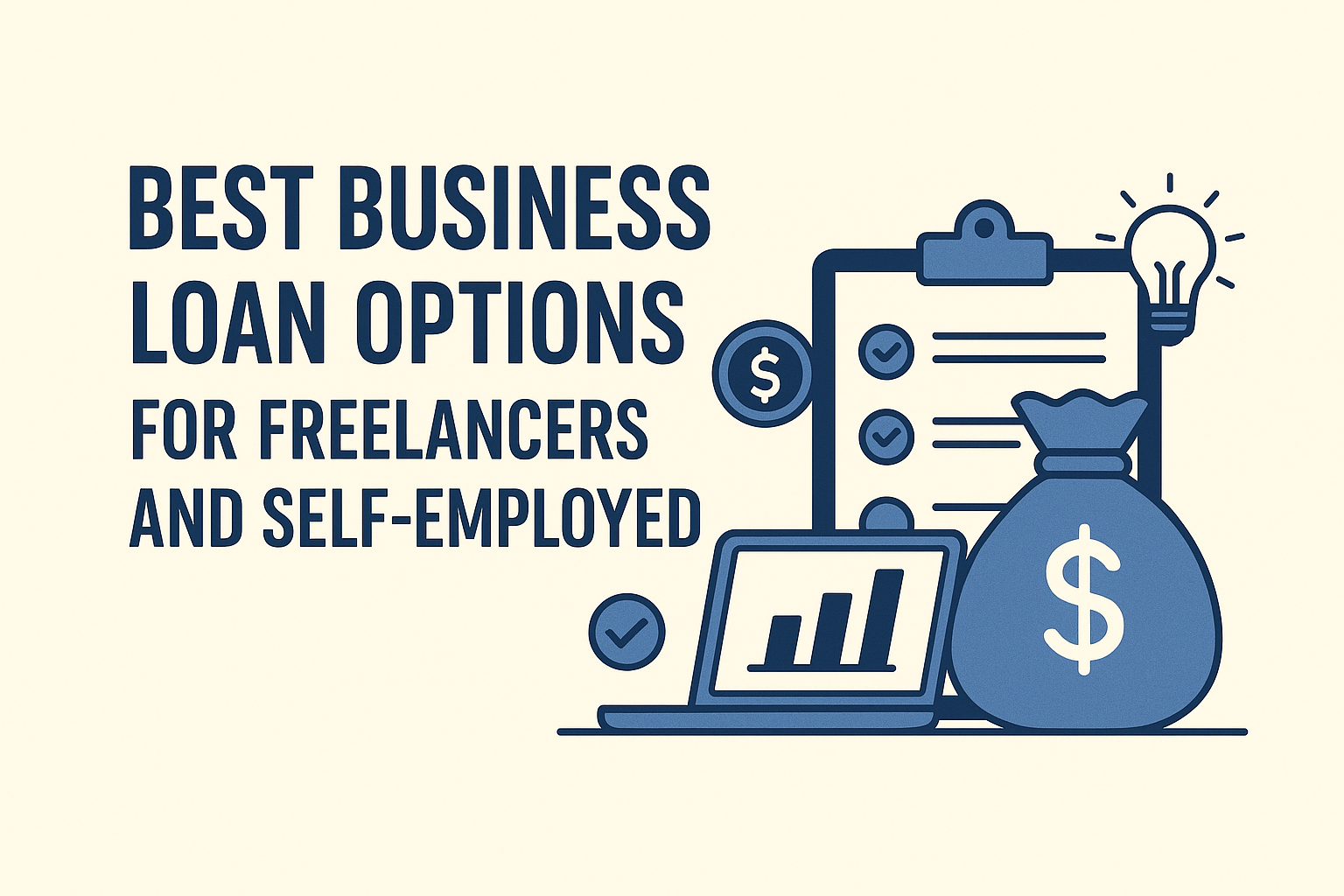As a freelancer or self-employed professional, securing a business loan can be a game-changer for managing cash flow, investing in growth, or covering unexpected expenses. However, traditional lenders often view freelancers and self-employed individuals as riskier due to irregular income. This guide explores the best financing options tailored for freelancers and self-employed professionals, helping you find the right loan to grow your business without financial strain.
Challenges Freelancers and Self-Employed Face in Securing Loans
Unlike salaried employees, freelancers and self-employed individuals often face hurdles when applying for business loans. These include:
- Irregular Income: Inconsistent earnings make it harder to prove repayment ability.
- Extensive Documentation: Lenders may require tax returns, bank statements, or profit and loss statements to verify income.
- Higher Risk Perception: Without a steady paycheck, lenders may see you as a riskier borrower.
Despite these challenges, many lenders and platforms now cater specifically to self-employed professionals, offering flexible business loan options.
Top Business Loan Options for Freelancers and Self-Employed
Here are the best financing options designed to meet the unique needs of freelancers and self-employed individuals:
1. Personal Loans
Personal loans are a versatile option for freelancers who may not qualify for traditional business loans. They’re often unsecured, requiring no collateral, and can be used for business purposes like equipment purchases or marketing.
Key Features:
- Fixed interest rates for predictable payments.
- Loan amounts typically range from small to moderate sums.
- Approval based on personal credit and income history.
- Repayment terms of 1–5 years.
Best For: Freelancers with good credit needing flexible funds for business or personal expenses.
2. Business Lines of Credit
A business line of credit offers flexible access to funds up to a pre-approved limit, ideal for managing cash flow fluctuations common in freelancing.
Key Features:
- Borrow only what you need and pay interest only on the used amount.
- Revolving credit, allowing repeated use as you repay.
- Some lenders offer lines tailored for self-employed with relaxed requirements.
Best For: Freelancers needing ongoing access to funds for variable expenses like inventory or marketing campaigns.
3. Invoice Financing
Invoice financing allows freelancers to borrow against unpaid client invoices, providing immediate cash flow while waiting for payments.
Key Features:
- Advance up to 90–100% of invoice value.
- Approval based on client credit, not your own.
- Fast funding, often within 24 hours.
Best For: Freelancers with B2B clients facing delayed payments.
4. Microloans
Microloans are small loans, typically up to $50,000, offered by nonprofit lenders or government-backed programs. They’re designed for small businesses and self-employed individuals.
Key Features:
- Lower interest rates compared to traditional loans.
- Flexible eligibility, often supporting startups or those with lower credit.
- Ideal for small-scale investments like equipment or supplies.
Best For: New freelancers or those needing smaller amounts for specific business needs.
5. Business Credit Cards
Business credit cards provide a revolving line of credit for everyday expenses, often with rewards like cashback or travel points.
Key Features:
- 0% APR introductory periods for interest-free borrowing.
- Flexible spending for small, recurring costs.
- Builds business credit with responsible use.
Best For: Freelancers managing daily expenses or seeking rewards while building credit.
Comparison of Loan Options
| Loan Type | Best For | Interest Rates | Funding Speed |
|---|---|---|---|
| Personal Loan | Large expenses, debt consolidation | Lower, fixed | 1–7 days |
| Business Line of Credit | Ongoing expenses, cash flow | Variable, moderate | 1–3 days |
| Invoice Financing | Delayed client payments | Fees-based | Within 24 hours |
| Microloan | Small-scale investments | Low to moderate | 1–14 days |
| Business Credit Card | Daily expenses, rewards | High, variable | Instant upon approval |
Tips for Securing a Business Loan as a Freelancer
To improve your chances of approval and secure favorable terms, follow these steps:
- Assess Your Financial Health: Review your income, expenses, and credit score. Strong financials increase approval odds.
- Gather Documentation: Prepare tax returns, bank statements, and proof of business (e.g., 1099 forms or client contracts).
- Choose the Right Lender: Look for lenders specializing in freelancers or self-employed, such as online platforms or credit unions.
- Compare Offers: Prequalify with multiple lenders to find the best rates and terms without impacting your credit.
- Consider Alternative Financing: Explore crowdfunding or peer-to-peer lending if traditional loans are hard to secure.
Conclusion
Finding the right business loan as a freelancer or self-employed professional requires understanding your options and preparing thoroughly. Personal loans, business lines of credit, invoice financing, microloans, and business credit cards each offer unique benefits tailored to different needs. By assessing your financial situation, comparing lenders, and choosing a loan that aligns with your goals, you can secure the financing needed to grow your business. Start exploring these options today to take your freelance career to the next level.

